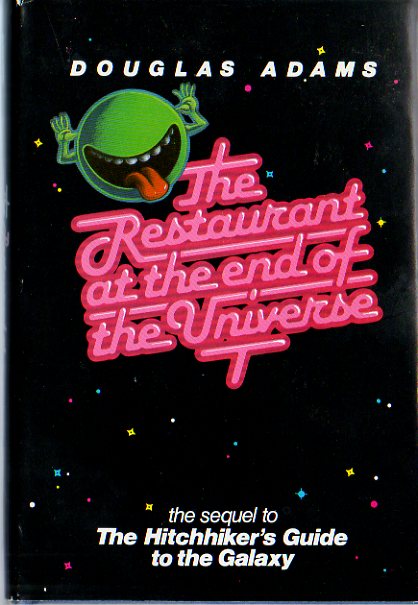
I don’t really know how to review Pastrix. I think what I’m going to do is tell you a bit about the book itself and its author, and then blog about how some of the things in the book really affected me and gave me some things to ruminate on. So, enter at your own risk, I’m going to talk about faith.
Awhile back Cannonball’s very own bonnie read and reviewed this book and suggested it to me via Goodreads before I even had a chance to read her review (and is why I am counting this book towards my Read Harder Challenge Task 18 – a book recommended to you). I had commented on one of her earlier reviews of another religious book, and she thought this one sounded up my alley. Boy was she right. At its heart, Pastrix is the personal journey of Nadia Bolz-Weber from her teenage years in a conservative Christian environment, her years of living dangerously and then her recovery and rediscovery of faith. In this book she also lays out some general lessons from the trenches wisdom and places to start thinking. I did a lot of thinking while reading this book, which is why it took me almost a week to read its 200 short pages.
Here’s the idea that completely and totally won me over to this book, its author, and her message: “The Bible is not God. The Bible is simply the cradle that holds Christ. Anything in the Bible that does not hold up to the Gospel of Jesus Christ simply does not have the same authority.”
Boom. (Yes, we just dove into the deep end of the pool.)
Here in the States (and perhaps in your corner of the world) most of the big issues that divide us are often pulled out of the Bible and people will scream loudly and profusely that their interpretation or reading is correct and anyone who disagrees with them is not only wrong, but unfaithful. And does this ever sting. I am a Catholic who shockingly enough, has read most of her Bible (I have yet to get through some of the Old Testament, but goals are good). In that, and through bible study, I’ve come away with what, to many, would seem a pretty liberal faith. I don’t believe that earth was created in six days; I believe it was created during six passages of time, because that’s both a more accurate translation and also lines up with science. You would not believe the amount of hate that has been spewed my way over the years for daring to hold that point of view and any number of others that I do. I am a lapsed Catholic currently because I have not found a church home that works for me, but I play in a community band based from a Protestant church each week and pray fervently while praising God with our music. These days that is my expression of faith. But getting back to the point up top, that the people who would use the Bible as a weapon against the faithful like me are not using that book for its intended purpose, which is to bring us closer to our faith and God.
Nadia (I’m going to go ahead and call her by her first name, I don’t think she’d mind) also talks at length about how her fundamental Christian childhood created within her a need to place things into boxes: the things that were good, and the things that weren’t. While this is something that she has to come to terms with on her own, the real lesson is learning that while we may put things and people into these containers (I’m SUPER guilty of this one), that God doesn’t. She shares a particularly powerful message from a friend who reminded her that whenever we draw a line between us and others, God is always on the other side of that line – away from us and the decision to exclude. This hit me hard, because, as is completely human, I usually think I’m right and everyone else is wrong. But, in doing so I am not crafting community, I’m creating division. This is not what will heal us, and I unfortunately see it on both sides of the aisle, conservative and liberal, faithful and not. Think about your own Facebook friends, don’t you see the vitriol too? Is that really how you want to be defined? I don’t. My friend Stacey wrote a great blog a few months back about how our friendship strengthens us because we view things differently. Very, very differently. We don’t have to agree to be friends; we just have to care for each other and that we do. That, to me, is God.
The final thing I want to talk about is Nadia’s discussion of Matthew 20:1-7 which is the story of the farmer hiring laborers which speaks to the idea that God’s generosity and grace may appear unfair. Nadia was assigned this passage to preach, and in a truly beautiful chapter she describes how she got herself in a mental space to preach about it. Here’s her reasoning: “What makes this the kingdom of God is not the quality of the people in it. What makes Lutherans blessed is not, as I once thought, that they’re somehow different from the people in the Church of Christ where I was raised. Rather, what makes us all blessed is that, like the landowner in the parable, God comes and gets us, taps us on the should, and says ‘Pay attention, this is for you’. Dumb as we are, smart and faithful as we are, just as we are.” I got chills when I read that because we each have moments, even if we are not the faithful sort, where we feel like we have been placed somewhere for a reason. We made friends with someone; we got a new job somewhere, SOMETHING that seems larger than ourselves. For me, those are the moments when I remember that God is for me. He is working on my behalf, even though I have the pugnacious quality to throw my free will back at him. But here is how Nadia describes the personality of God, as she has experienced it, and how Matthew describes it to us: “it’s the fact that the trampy landowner couldn’t manage to keep out of the marketplace. He goes back and back and back, interrupting lives… coming to get his people. Grace tapping us on the shoulder.” He just can’t stop but coming to get us, and we don’t have to earn it.
These things, as well as a great discussion about the nature of Grace are all in the front half of the book. If I had stopped reading then this would have easily been a five start book for me, but I kept reading and the back half felt a little disjointed. It was mostly organized by theme, but the chapters didn’t hold together as well. But, what made the reading journey completely worth it to me was this thought near the end: “God was never about making me spiffy; God was about making me new.” New is rarely perfect and almost always messy, and I think we can all relate to that. It reminded me of a quote from Jane Fonda when she did the Masterclass program on OWN (yes, I’m a lady who liked to hear people tell their stories) where she talks about how we aren’t meant to be perfect, that we’re meant to be whole. That quote has stayed with me since I first watched that episode many years ago, and I have a feeling that Nadia’s quote about not being spiffy, but new will stay with me as well.
This book was read and reviewed as part of the charitable Cannonball Read.











